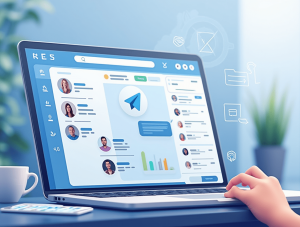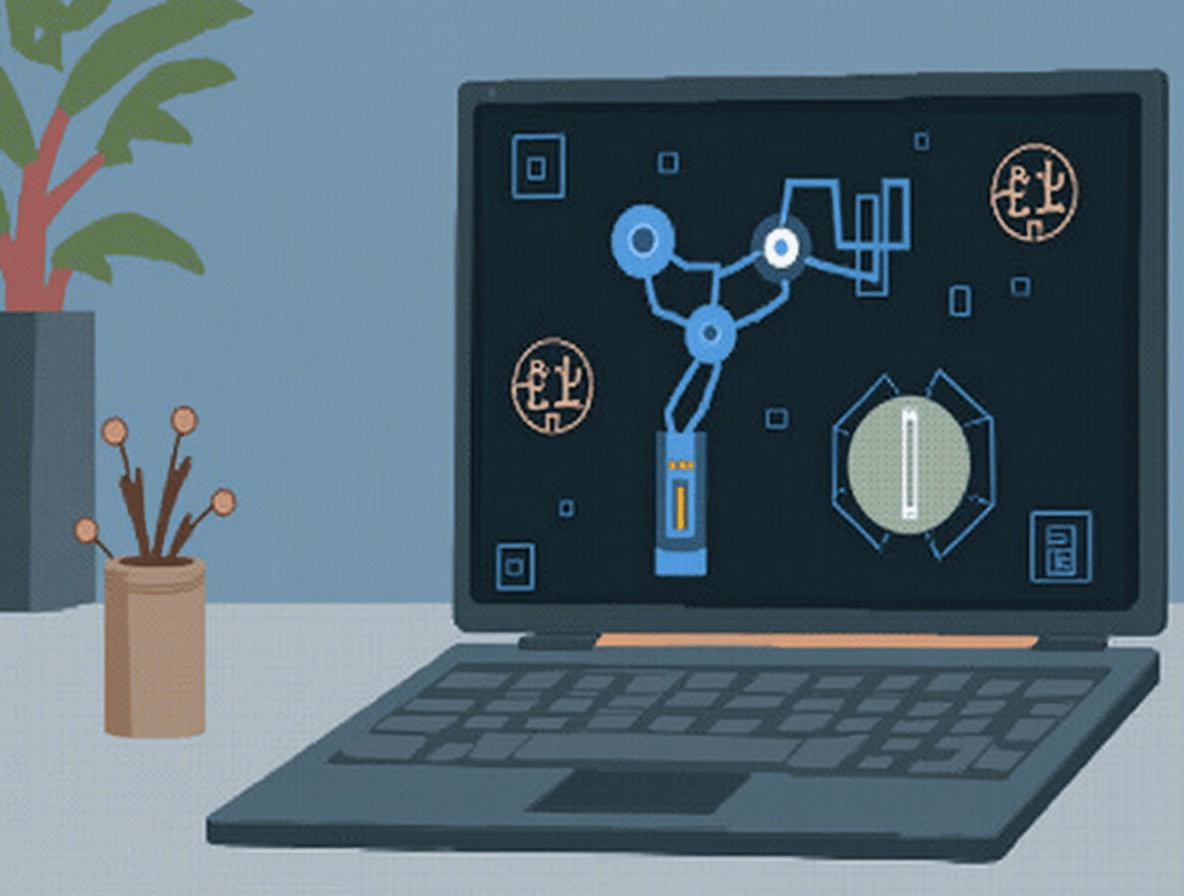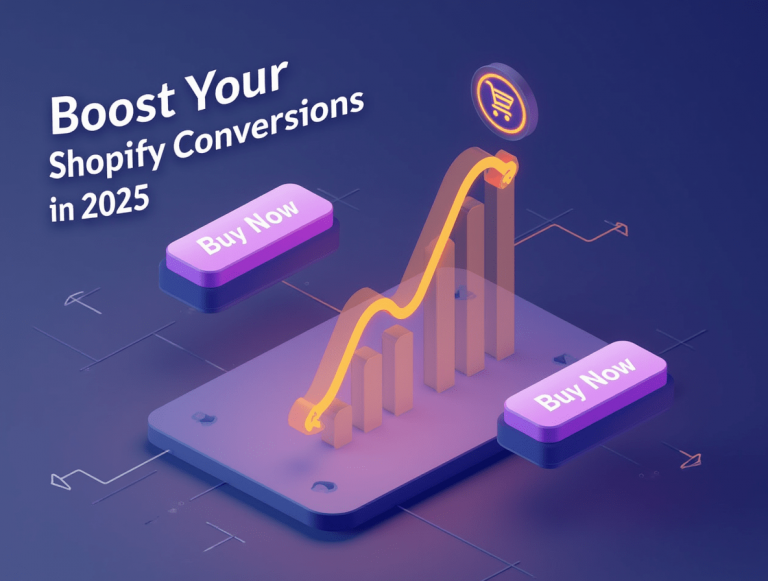
Did you know that small businesses using AI tools report an average 35% increase in productivity and a 28% reduction in operational costs? As we navigate through 2025, artificial intelligence has evolved from a luxury to a necessity for small businesses looking to remain competitive in an increasingly digital marketplace.
For many small business owners, the challenge isn’t recognizing the importance of AI—it’s identifying which tools actually deliver results without requiring enterprise-level budgets or technical expertise. With thousands of options flooding the market, finding solutions that truly address your specific business needs can feel overwhelming.
This comprehensive guide will walk you through the most effective, affordable, and user-friendly AI tools that are specifically helping small businesses thrive in 2025. From customer service automation to predictive analytics and content creation, these solutions are designed to give your business the technological edge it needs to succeed.
Understanding AI for Small Business in 2025
The AI Revolution for Small Business
The artificial intelligence landscape has undergone remarkable democratization over the past few years. What was once accessible only to large corporations with dedicated technical teams has now become available to businesses of all sizes. This shift is particularly significant for small businesses, which can now leverage powerful AI capabilities without massive investment.
In 2025, small business AI tools have moved beyond simple automation to offer genuinely intelligent assistance across virtually every business function. These tools now demonstrate impressive contextual understanding, can learn from your business data, and adapt to your specific needs over time.
Key AI Categories for Small Businesses
Before diving into specific tools, it’s helpful to understand the major categories where AI is making the biggest impact for small businesses:
- Customer Experience Enhancement: AI-powered chatbots, voice assistants, and personalization engines
- Operational Efficiency: Workflow automation, document processing, and predictive maintenance
- Financial Intelligence: Cash flow forecasting, expense management, and fraud detection
- Marketing Optimization: Content creation, customer segmentation, and campaign analytics
- Data Analysis: Business intelligence, trend identification, and competitive analysis
- Team Productivity: Meeting assistants, knowledge management, and task prioritization
Top 10 AI Tools for Small Business Success in 2025
1. OmniAssist Pro
Category: Customer Experience & Operations
OmniAssist Pro has emerged as the comprehensive AI assistant specifically designed for small businesses in 2025. What sets it apart is its ability to seamlessly integrate across multiple business functions while requiring minimal setup time.
Key Features:
- Multi-channel customer support automation (website, social media, email, SMS)
- Natural language processing that understands industry-specific terminology
- Appointment scheduling with intelligent conflict resolution
- Document summarization and data extraction
- Voice-enabled business process automation
- Custom training on your specific business procedures
Many small businesses report that OmniAssist Pro effectively replaces 2-3 separate tools they were previously using, with pricing plans starting at $79/month for growing businesses.
According to a recent Small Business Technology Review, “OmniAssist Pro delivers enterprise-level AI capabilities at a price point accessible to even the smallest operations, with an implementation time averaging just 48 hours.”
2. FinanceGPT
Category: Financial Intelligence
Financial management remains one of the most challenging aspects of running a small business, and FinanceGPT has emerged as the leading AI solution in this domain for 2025.
Key Features:
- Real-time cash flow monitoring and prediction with 92% accuracy
- Automated bookkeeping with accounting software integration
- Intelligent invoice processing and payment reminders
- Tax preparation assistance with regulation compliance verification
- Opportunity cost analysis for business decisions
- Customized financial reporting for stakeholders
FinanceGPT offers tiered pricing starting at $49/month, with each tier unlocking more sophisticated forecasting capabilities.
Janet Rivera, owner of Coastal Creations, reports: “FinanceGPT identified spending patterns we’d never noticed and helped us optimize our budget, resulting in 18% cost reduction within three months.”
3. ContentSphere AI
Category: Marketing & Content Creation
Content creation remains a significant challenge for small businesses, and ContentSphere AI has become the standout solution in 2025 for generating high-quality, brand-aligned content at scale.
Key Features:
- Multi-format content generation (blog posts, social media, email campaigns, product descriptions)
- SEO optimization with semantic search understanding
- Brand voice customization that learns from your existing content
- Multilingual capabilities supporting over 37 languages
- A/B testing recommendations based on performance analytics
- Visual content suggestions with integrations to design tools
ContentSphere AI uses a credit-based system rather than a subscription model, making it particularly appealing for businesses with variable content needs.
What makes ContentSphere AI particularly valuable is its ability to maintain consistent brand voice while adapting content for different platforms and audiences—something earlier AI content tools struggled with.
4. InsightIQ
Category: Data Analysis & Business Intelligence
For small businesses looking to compete with data-driven larger companies, InsightIQ provides accessible business intelligence capabilities previously available only at enterprise levels.
Key Features:
- Visual data exploration requiring no coding knowledge
- Competitive intelligence gathering from public sources
- Customer behavior pattern identification
- Predictive trend analysis with actionable recommendations
- Automated weekly business health reports
- Data storytelling for presentations and stakeholder meetings
InsightIQ has positioned itself as the “data scientist in your pocket” for small business owners, with pricing based on data volume rather than user seats, making it accessible for even the smallest teams.
“What impressed us most about InsightIQ was how quickly it identified seasonal patterns in our business that we hadn’t recognized despite operating for five years,” notes Michael Chen of Urban Greenery.
5. TaskFlow AI
Category: Team Productivity & Project Management
TaskFlow AI has revolutionized how small business teams collaborate and manage projects by applying artificial intelligence to workflow optimization.
Key Features:
- Automated task prioritization based on business goals and deadlines
- Smart resource allocation recommendations
- Meeting summarization with action item extraction
- Project bottleneck prediction and resolution suggestions
- Team capacity planning with burnout prevention
- Cross-application workflow automation
TaskFlow AI integrates with popular tools like Slack, Asana, Monday.com, and Microsoft Teams, creating a centralized intelligence layer across all productivity platforms.
The system’s ability to learn from past projects and apply those insights to new initiatives has made it particularly valuable for small businesses with limited project management experience.
6. CustomerDNA
Category: Customer Relationship Management
CustomerDNA represents the next evolution in AI-enhanced CRM systems, moving beyond simple contact management to provide genuine customer intelligence.
Key Features:
- Customer sentiment analysis across all communication channels
- Predictive lifetime value calculation for each customer
- Personalized engagement recommendations
- Churn risk identification with prevention strategies
- Upsell/cross-sell opportunity detection
- Customer journey visualization and optimization
The platform integrates with existing CRM systems like Salesforce and HubSpot, enhancing their capabilities rather than requiring a complete migration.
Small businesses using CustomerDNA report an average 23% improvement in customer retention rates and 17% increase in average order value.
7. RecruiterBot
Category: Human Resources & Talent Acquisition
Finding and retaining talent remains a significant challenge for small businesses competing with larger companies’ recruitment resources. RecruiterBot leverages AI to level the playing field.
Key Features:
- Intelligent job description enhancement for better candidate matching
- Resume screening with skill gap analysis
- Automated initial candidate screening through conversational AI
- Interview question recommendations based on position requirements
- Bias detection in hiring materials and processes
- Onboarding process automation and optimization
RecruiterBot’s affordability ($35/month for basic features) has made sophisticated recruitment capabilities accessible to businesses that previously relied entirely on manual hiring processes.
8. LocalSEO AI
Category: Digital Marketing & Search Optimization
For small businesses dependent on local customers, LocalSEO AI has emerged as an essential tool for improving visibility in increasingly competitive local search results.
Key Features:
- Automated local keyword research and opportunity identification
- Google Business Profile optimization with AI-generated responses
- Local competitor analysis and differentiation strategy
- Review sentiment monitoring with response suggestions
- Local content creation optimized for voice search
- Local backlink opportunity identification
LocalSEO AI’s most impressive capability is its ability to correlate online visibility improvements with in-store traffic and sales when integrated with point-of-sale systems.
9. SupplyMind
Category: Inventory & Supply Chain Management
Small businesses dealing with physical products face unique inventory challenges that SupplyMind addresses through advanced predictive AI.
Key Features:
- Demand forecasting with 87% accuracy (industry-leading for small business tools)
- Inventory level optimization to balance carrying costs and stockouts
- Supplier evaluation and risk assessment
- Price fluctuation prediction for raw materials
- Order cycle optimization for cost efficiency
- Integration with major e-commerce platforms and POS systems
SupplyMind’s ability to account for seasonal variations, market trends, and even weather patterns when making inventory recommendations has made it particularly valuable for retail and manufacturing businesses.
10. SecurityShield AI
Category: Cybersecurity & Risk Management
As cyber threats increasingly target small businesses, SecurityShield AI has emerged as an accessible solution that provides enterprise-grade protection without requiring dedicated security staff.
Key Features:
- Continuous vulnerability scanning and prioritization
- Phishing attempt detection across email and messaging platforms
- Unusual access pattern detection and automatic blocking
- Employee security behavior monitoring and training recommendations
- Compliance guidance for industry-specific regulations
- Incident response automation and guidance
SecurityShield AI’s approach of combining algorithmic threat detection with clear, actionable recommendations has made sophisticated cybersecurity accessible to business owners without technical backgrounds.
Implementation Strategies for Maximum Impact
Successfully implementing AI tools requires more than just purchasing subscriptions. Here are strategies that successful small businesses are using to maximize their AI investments:
Start With Clear Business Objectives
Identify specific business problems you want to solve before selecting tools. The most successful implementations begin with concrete objectives like “reduce customer response time to under 1 hour” rather than vague goals like “improve customer service.”
Prioritize Integration Capabilities
Choose AI tools that work well with your existing technology stack. The value of AI diminishes significantly when it creates data silos or requires manual data transfer between systems.
Develop an AI Training Plan for Your Team
Even the most user-friendly AI tools require some adjustment from your team. Create structured training that focuses not just on how to use the tools, but on how they change existing workflows.
Start Small and Scale Gradually
The most successful small business AI implementations typically begin with a single department or function, demonstrate success, and then expand. This approach allows for learning and adjustment without overwhelming your organization.
Monitor and Measure Results
Establish clear metrics before implementation and regularly assess whether your AI tools are delivering expected results. Most of the tools listed above include built-in analytics to help with this evaluation.
The Future of AI for Small Business
Looking beyond 2025, several emerging trends will likely shape the next generation of small business AI tools:
- Industry-Specific AI Solutions: Rather than general-purpose tools, we’re seeing the emergence of highly specialized AI designed for specific industries like healthcare, construction, or food service.
- Ambient Intelligence: AI systems that operate in the background, continuously monitoring business operations and proactively suggesting improvements without requiring explicit instructions.
- Enhanced Visual Intelligence: Advanced image and video analysis capabilities will become standard, enabling applications from inventory management through visual inspection to customer behavior analysis in physical locations.
- Collaborative AI: Tools designed to enhance human-AI teamwork rather than simply automating tasks, with AI systems that can explain their reasoning and learn from human feedback.
Conclusion
The AI tools available to small businesses in 2025 represent a remarkable democratization of technology that was previously accessible only to large enterprises with substantial IT budgets. By strategically implementing solutions like those outlined in this guide, small businesses can not only level the playing field but potentially outmaneuver larger competitors through greater agility and personalization.
The key to success lies not in adopting every available tool, but in selecting and implementing those that address your specific business challenges and integrate well with your existing operations. Start with clear objectives, measure results carefully, and be prepared to adjust your approach as you learn.
For small businesses willing to embrace these new technologies, AI offers not just incremental improvements but the potential for transformative growth and enhanced competitiveness in an increasingly digital marketplace.
FAQ Section
How much should a small business budget for AI tools in 2025?
Most successful small businesses allocate between 3-7% of their operational budget to technology, with AI tools typically comprising 30-50% of that technology spend. For a business with $500,000 in annual revenue, this translates to approximately $7,500-$17,500 annually for all technology, with $2,250-$8,750 specifically for AI tools.
Do I need technical expertise to implement these AI tools?
The tools highlighted in this guide are specifically selected for their accessibility to non-technical users. While some initial setup and configuration may benefit from IT assistance, day-to-day usage is designed for business professionals without technical backgrounds.
How quickly can I expect to see ROI from implementing AI tools?
Based on case studies from similar businesses, customer service AI typically shows positive ROI within 2-3 months, marketing AI within 3-5 months, and operational AI within 4-6 months. Financial and analytical tools often take longer, with ROI becoming clear after 6-9 months of use.
Are there privacy concerns with using AI tools for my business data?
Privacy considerations vary by tool and industry. Look for tools that offer data residency options, clear data retention policies, and compliance certifications relevant to your industry. Always review terms of service regarding data usage for training the AI provider’s models.
Can these AI tools replace employees in my small business?
Rather than replacing employees, most successful implementations redirect human talent from repetitive tasks to higher-value activities requiring creativity, relationship building, and strategic thinking. Businesses often find that AI tools allow them to scale operations without proportional staff increases rather than reducing existing headcount.














